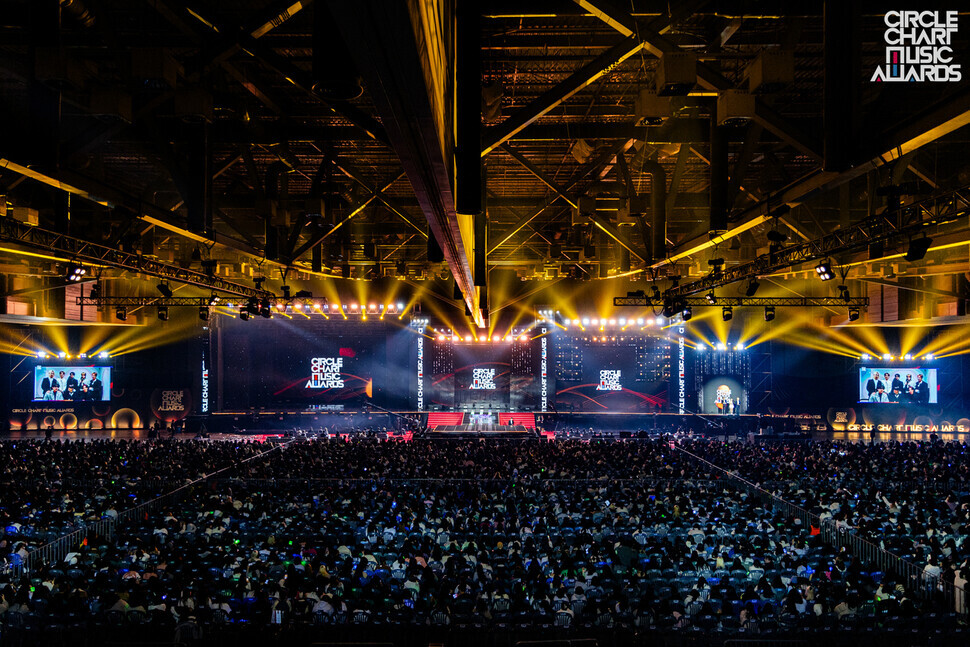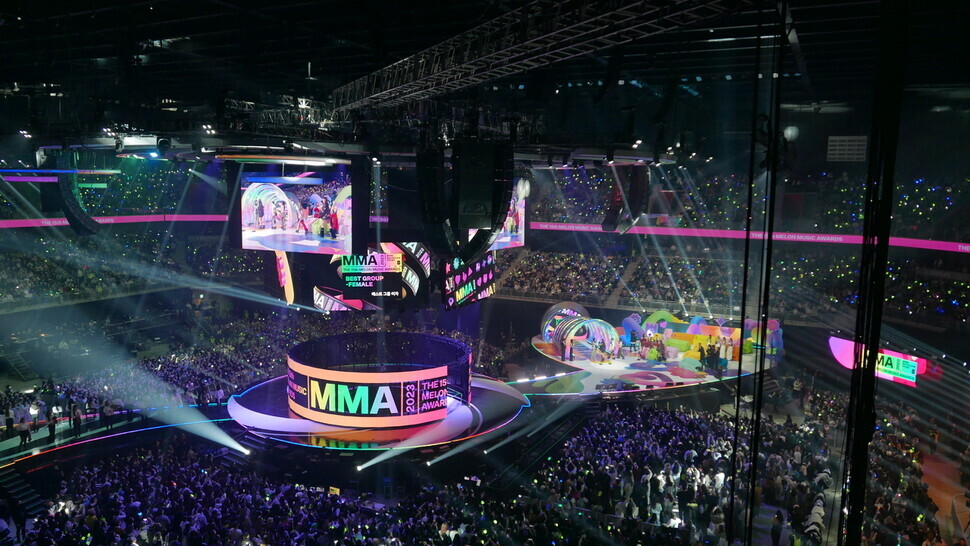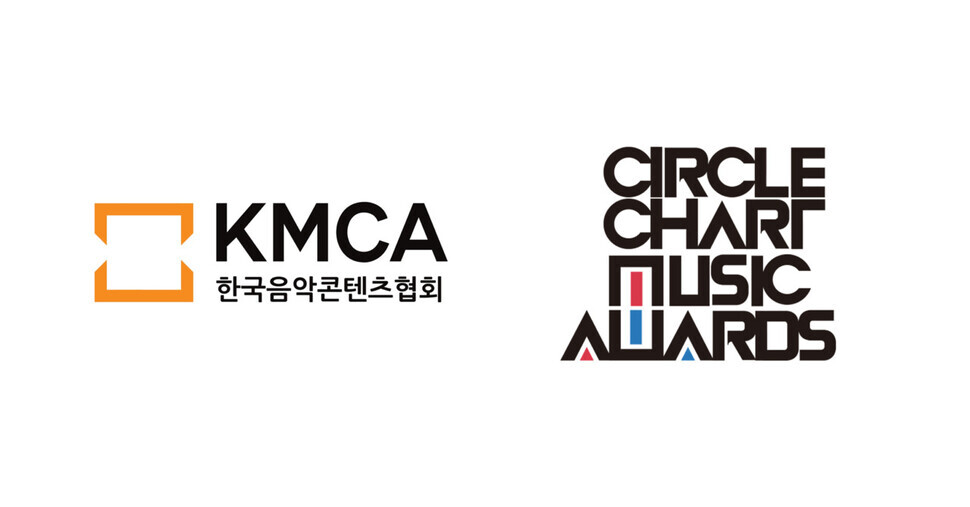hankyoreh
Links to other country sites 다른 나라 사이트 링크
Proliferation of award ceremonies is doing K-pop more harm than good

“Before, we would only really suffer around the end of the year and beginning of the next, when they were making decisions about attending the awards ceremonies. Now we get it throughout the year.”
The entertainment agency employee let out a deep sigh. The proliferation of popular music award ceremonies in Korea over the past few years has turned into a major headache, with around two dozen of them now taking place in a single year.
In the past five years, over five new ceremonies have been added. Another three or four are scheduled to be launched this year.
Creating award ceremonies has become a kind of trend among media companies, including sports newspapers and entertainment websites. This has resulted in confusion and the need to shift dates around to avoid competition. One of the new ceremonies is scheduled to be held just next month.
The issue with these ceremonies is that many of them focus more on profit-generating activities than on the prestige of the awards themselves. In some cases, their pursuit of gains leads them to hold the events overseas, handing the voting over to foreign fans — for a fee.
The preferred locations are countries with large K-pop fan bases, including Japan, Thailand, Indonesia and the Philippines. Last year, even the public broadcaster KBS rebranded its “Song Festival” event as the “Music Bank Global Festival” and held it in Japan.
The result is a situation where Korean fans have ended up being left out of ceremonies honoring Korean music.
The reason the festivals are in such a rush to relocate overseas is because it allows them to jack up their ticket prices substantially. Tickets for one ceremony recently held in Southeast Asia reportedly reached as high as 590,000 won, or around US$440, apiece. The amount was pricey indeed, especially considering that the country in question has a per capita annual income equivalent to around 6 million won, with most of the audience members in their teens and 20s.
The overseas fans’ growing feelings of resentment over the steep ticket prices is a worrying trend for the future of K-pop.
Other problems have stemmed from a lack of management experience and cost-cutting measures. Some recent ceremonies have been marred by safety issues, including performers falling offstage and fights breaking out in the audience.

In the case of one ceremony held in Korea last month, a post widely circulated online claimed that the author, an audience member with a standing ticket, was unable to reach the restroom and ended up having to relieve themselves where they were.
A performer who hosted an award ceremony in Thailand last January posted on social media that it had “the worst sound system I’ve seen in my life.”
Another newly created ceremony that was supposed to be held in Thailand last year ended up suddenly canceled with two weeks to go, much to the consternation of the performers, fans and industry officials.
The entertainment agencies and artists responsible for the performers have also complained of difficulties. Specifically, some of them have found themselves in a position where they wanted to back out because of pre-scheduled commitments or health issues, only to find out that it was not an option. Since many of the companies organizing the events are media outlets, “revenge reporting” is a real fear.
Because the events are ostensibly meant to honor achievements, they don’t reward the artists properly for performing either.
“With many of these award ceremonies, the roles are reversed, where they’re giving out awards to get you to perform,” explained an entertainment agency source.
“You get there and they tell you they won’t give you an award unless you perform. What kind of prestige is that sort of award going to have?” they asked.
The situation has reached a point where even music industry insiders are insisting that it can’t go on.
On Tuesday, the Korea Music Content Association (K-MCA) — an organization whose members include record companies and distributors — issued a statement titled, “We oppose indiscriminately held K-pop award ceremonies.”
“Some of the recent K-pop award ceremonies have turned into vehicles for pursuing profits, while fairness and objectivity have increasingly fallen by the wayside,” the statement read. “We are concerned about award ceremonies being tarnished by one-off events for show that trade on the success and fan base of K-pop.”

Choi Kwang-ho, who serves as the association’s secretary general, said, “The explosion in award ceremonies has been endangering the health of artists, while the extreme competition for engagement has left artists and their management companies struggling with being coerced into performing.”
“We decided to take action as an association because of the consensus among member companies that the proliferation of K-pop award ceremonies is actually detrimental to K-pop’s development,” he explained.
As a way of sounding the alarm, the K-MCA decided to indefinitely postpone the Circle Chart Music Awards, which its members have been responsible for holding in past years. It also announced plans during the first half of 2024 to produce and distribute standard award ceremony appearance contracts and guidelines to protect artists and prevent conflicts between businesses.
One entertainment agency source said, “It’s inspiring to see that a group representing different companies is willing to take the initiative, but it’s not clear whether the other companies organizing award ceremonies will follow suit.”
“Also, the mere fact that they’re drawing up ceremony appearance contracts and guidelines isn’t any guarantee that they’ll be followed,” they warned.
“If this can’t be regulated privately, we’d like to see government officials taking action to fix the chaos.”
By Suh Jung-min, staff reporter
Please direct questions or comments to [english@hani.co.kr]

Editorial・opinion
![[Column] Season 2 of special prosecutor probe may be coming to Korea soon [Column] Season 2 of special prosecutor probe may be coming to Korea soon](https://flexible.img.hani.co.kr/flexible/normal/500/300/imgdb/original/2024/0426/3317141030699447.jpg) [Column] Season 2 of special prosecutor probe may be coming to Korea soon
[Column] Season 2 of special prosecutor probe may be coming to Korea soon![[Column] Park Geun-hye déjà vu in Yoon Suk-yeol [Column] Park Geun-hye déjà vu in Yoon Suk-yeol](https://flexible.img.hani.co.kr/flexible/normal/500/300/imgdb/original/2024/0424/651713945113788.jpg) [Column] Park Geun-hye déjà vu in Yoon Suk-yeol
[Column] Park Geun-hye déjà vu in Yoon Suk-yeol- [Editorial] New weight of N. Korea’s nuclear threats makes dialogue all the more urgent
- [Guest essay] The real reason Korea’s new right wants to dub Rhee a founding father
- [Column] ‘Choson’: Is it time we start referring to N. Korea in its own terms?
- [Editorial] Japan’s rewriting of history with Korea has gone too far
- [Column] The president’s questionable capacity for dialogue
- [Column] Are chaebol firms just pizza pies for families to divvy up as they please?
- [Column] Has Korea, too, crossed the Rubicon on China?
- [Correspondent’s column] In Japan’s alliance with US, echoes of its past alliances with UK
Most viewed articles
- 1The dream K-drama boyfriend stealing hearts and screens in Japan
- 2‘We must say no’: Seoul defense chief on Korean, USFK involvement in hypothetical Taiwan crisis
- 3AI is catching up with humans at a ‘shocking’ rate
- 4S. Korea “monitoring developments” after report of secret Chinese police station in Seoul
- 5[Column] Can we finally put to bed the theory that Sewol ferry crashed into a submarine?
- 6[Editorial] Yoon cries wolf of political attacks amid criticism over Tokyo summit
- 7[Photo] “Comfort woman” survivor calls on president to fulfill promises
- 8Doubts remain over whether Yoon will get his money out of trip to Japan
- 9Up-and-coming Indonesian group StarBe spills what it learned during K-pop training in Seoul
- 10[Editorial] Was justice served in acquittal of Samsung’s Lee Jae-yong?